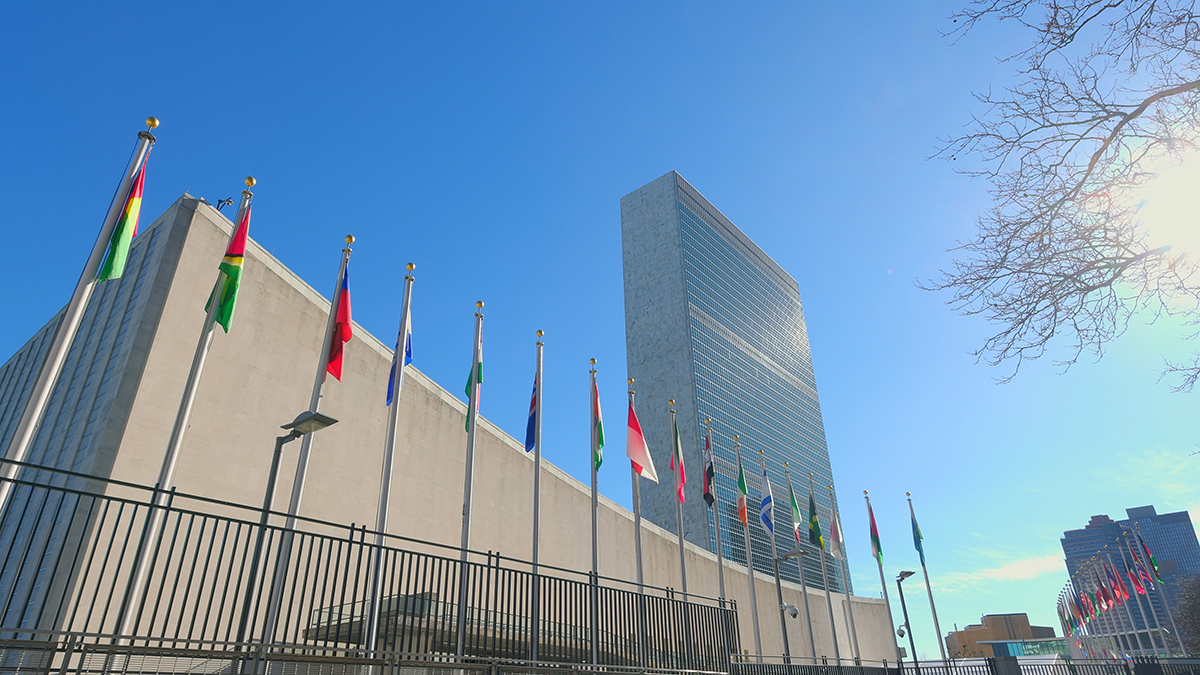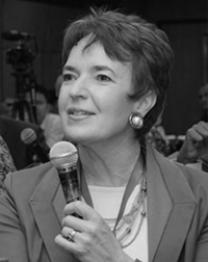© Shutterstock - United Nations Headquarter in New York
The United Nations Conference on Trade and Development (UNCTAD) convened a high-level side event on the margins of the Third Preparatory Committee for the Fourth International Conference on Financing for Development (FfD4).
Titled Resolving the Morass: UN Expert Group on Debt Solutions for Africa and SIDS, the discussion aimed to present the work of the Group of Experts appointed by the UN Secretary General to promote policy solutions to address the debt crisis and featured key policy makers from Africa and SIDS Member States who shared experiences and offered insights as to how the FFD4 process can address the urgent needs of developing countries.
Key Outcomes and Discussions
The event underscored the urgency of addressing unsustainable debt burdens in developing nations, particularly in Africa and SIDS, where external debt now consumes a significant portion of government revenues. Experts emphasized the need for both immediate liquidity relief and long-term solutions to ensure debt sustainability and foster economic resilience.
Major insights from the discussion include:
- Current indicators of debt sustainability, which focus on the stock rather than the cost of debt servicing, present a misleading picture of debt and fiscal sustainability in developing countries. The discussion emphasized the need to move away from debt-to-GDP ratios toward a receivables-based approach in debt assessment. The debate highlighted Egypt, which now allocates 62% of its tax revenues to servicing debt, and SIDS, where more than 30% of government revenues are spent on debt servicing, significantly limiting fiscal space for essential investments.
- The discussion also examined the heavy concentration of debt in the public sector, which crowds out critical investments in climate resilience, economic diversification, and social services. Participants stressed the need for greater diversification and innovative approaches to scaling private investments in key sectors.
- Existing mechanisms, such as the G20 Common Framework, can be overly complex and protracted. Using Zambia’s experience as a case study, the discussion underscored how Zambia’s debt restructuring delayed macroeconomic planning and investment in critical sectors, while noting the punitive role CRAs played during the restructuring. The need for greater transparency, coordination, and equitable burden-sharing was emphasized.
- Recommendations were made to make Debt Sustainability Assessments (DSAs) more development-oriented by better integrating climate and nature risks, accounting for SDG-related spending needs, and ensuring that investments in key sectors, resilience, and productive capacities are adequately captured.
· The panel also underscored the importance of growth-led strategies for development. Key proposals included enhancing productive capacities by strengthening institutions for more effective debt management and governance, leveraging AI to improve economic transformation, tax collection, and debt analysis, addressing the critical financing gap, and scaling concessional and private sector financing through MDBs and IFIs.
Structure and Format:
Panel discussion was moderated by Ms. Penelope Hawkins, Acting head of Debt and Development Finance Branch, UNCTAD
Panelists:
- Prudence Kaoma, Permanent Secretary in the Ministry of Finance and National Planning, Zambia
- Ambassador Ali Naseer, Permanent Representative of the Maldives to the United Nations
- Mahmoud Mohieldin, Chair of the Expert Group and UN Special Envoy on Financing the 2030 Agenda
- Yan Wang, Expert Group Co-Chair (Virtual)
UNCTAD remains committed to working closely with stakeholders to drive forward practical solutions that support sustainable growth and financial resilience.
Debt has taken a central stage at the Fourth Conference on Financing for Development (FFD4), where the issue of debt and development is at a fever pitch, demanding urgent and decisive action. Developing nations face mounting debt challenges as unsustainable external debt service now consumes 14% of revenue for the median low-income country—over 2.5 times the level a decade ago—often surpassing spending on health, education, and other essential services. This unsustainable burden is driven by net financial outflows, where new financing is frequently diverted to service external debt. This is both an issue of less money flowing in, as FDI and portfolio investment have declined sharply, but also an issue of more money flowing out of these countries; both measured as the share of external debt service to exports and government revenues. According to UNCTAD calculations, two thirds of developing countries experienced deterioration of their external debt sustainability between 2017 and 2023 as debt service grew twice as fast as their export and remittance earnings.
The outlook remains bleak. With principal repayments set to more than double in 2025 compared to the previous decade's average, these trends demand not only solutions to short-term liquidity challenges but also strategies to address debt sustainability, secure large-scale affordable financing, and promote inclusive growth. And while Multilateral Development Banks (MDBs) and International Financial Institutions (IFIs) serve as a lifeline for affordable financing to developing countries, their efforts are insufficient to offset high debt service costs and bridge the exorbitant development financing gap. Even more troubling, stagnant growth prospects and rising fiscal pressures further exacerbate the challenges, threatening long-term development goals and progress toward the SDGs.
Against this backdrop, African countries and Small Island Developing States (SIDS) are disproportionately affected by the debt crisis, which is further exacerbated by climate change. Recognizing the urgency of this issue, the United Nations Secretary-General announced the establishment of a Group of Prominent Experts on 6 December 2024. The Group has been tasked with advancing actionable policy solutions, mobilizing political and public support, and contributing substantively to the preparations for the Fourth International Conference on Financing for Development (FfD4).
Objective:
This high-level side event aims to:
- Convene the Expert Group alongside member states to discuss innovative, actionable solutions to the intertwined challenges of debt and development.
- Distinguish between short-term solutions to liquidity challenges and effective long-term mechanisms for dealing with unsustainable debt while debating strategies for building sustainable debt management practices.
- Highlight Africa and SIDS-specific issues, ensuring their perspectives and priorities are central to the FfD4 discussions and reforms to the global debt architecture.
- Foster dialogue among key policy makers and stakeholders to build momentum and consensus on addressing the debt crisis effectively.
Structure and Format:
Panel discussion to be moderated by Penelope Hawkins, Head of Debt and Development Finance Branch, UNCTAD
Panelists:
- Prudence Kaoma, Permanent Secretary, Ministry of Finance and National Planning, Zambia
- H.E. Ali Naseer, Permanent Representative of the Maldives to the United Nations, New York
- Mahmoud Mohieldin, Chair of the Expert Group and UN Special Envoy on Financing the 2030 Agenda
- Trevor Manuel, Expert Group Co-Chair (Virtual)
- Yan Wang, Expert Group Co-Chair (Virtual)
Participation
This side-event is open to all participants of the 3rd Prep Com.
Registration
Online registration is mandatory for all those wishing to attend the meeting.
Only accredited organizations may register.
Penelope Hawkins is the acting head of the Debt and Development Finance Branch at UN Trade and Development (UNCTAD).
Previusly, as founder and managing director of Feasibility (Pty) Ltd, she has undertaken some of the leading research projects in the financial sector in Southern Africa, commissioned by regulators, policymakers, and the private sector.
She researches and engages with member country representatives and the broader civil and academic society on sovereign debt, financing for development, illicit financial flows, and financial inclusion.
She is a published economist, with a Ph.D. in economics from Stirling University, Scotland. She has an M.A. in economics (cum laude) from the University of South Africa and a B.A. in economics (honours), a higher diploma in education (cum laude) and a B.Sc., all from the University of the Witwatersrand.


